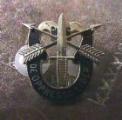Bob,
The CT were how the Commonwealth forces in Malaya referred to the insurgents as part of their IO campaign to deny them legitimacy. They may have been supported by the ethnic Chinese community and that is debatable but even if they were, that Chinese community was only a small proportion of the actual population of Malaya so you can not claim that the CT/MNLA had broad popular support.
The Taliban in AFG are insurgents - so....? We're discussing their level of popular support and I'd argue that it isn't that high in AFG either - if it were, then that campaign would probably be all done and dusted in their favour by now.
AQ in Iraq - ditto.
Republicans in Northern Ireland: Insurgents. "
...A revolutionary nationalist movement to remove the illegitimate (in the eyes of the populace...) British government..." Which portion of the populace? Unless you're going back to the 1920s, I think you'll find that the majority of the populace there didn't actually hold that belief.
Militia in Timor Leste: "
...Not super familiar, if they were locals they were insurgents..." Once again, that's irrelevant - the question is how much popular support did they have and the answer is not much. Some good books on this campaigns now and David Kilcullen also covers his part in it as a company commander in Accidental Guerrilla...
Mau Mau in Kenya: "
...Insurgents...." So....? Their level of popular support was low...
Under your FID model, most of WW2 consisted of a series of FID campaigns. The
2010 version of JP 3.22 FID defines it as:
That's fine up to the point where the intervention is supporting the host nation's programmes but once intervention operations cross beyond that point into the situations of Vietnam, Iraq and AFG, or Malaya, Indochine and Algerie where the line between host nation and intervening nation are blurred, then you are into something that is other than, and bigger than, FID....
Simon









Bookmarks